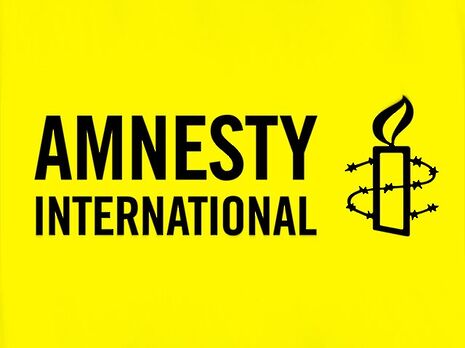The plight of the Afghan woman
Nelofar Farhang encourages us to get behind Amnesty International’s latest campaign

Imprisoned for escaping abusive households, attacked with acid for going to school, stoned to death for alleged adultery…
These are just three of a staggering number of shocking things women face on a daily basis in Afghanistan today. Under the oppressive Taliban regime, which ruled from 1996 to 2001, such inhumane treatment of women was customary; countless cases of women being publicly beaten, flogged and lashed for “crimes” such as wearing high heels and showing ankles were commonplace. Women were deprived of education, employment, and freedom. When the Taliban regime was ousted, it was hoped that the plight of women in Afghanistan would come to an end. Unfortunately, the present situation demonstrates a very bleak reality.
In 2001, when the United States, UK and NATO allies took military action to overthrow the Taliban, a primary reason for their substantial intervention was the restoration of human rights in the country particularly those of women. In the period from 2001 to 2005, the re-integration of women into society took its first important steps. Freedom, independence and fundamental human rights for women became, for the first time in many decades, a tangible reality. After years of merciless torture and discrimination, women could leave their homes not accompanied by a close male relative, girls could receive an education without fearing for their lives.

For some time, the figures seemed promising: the return of 2.2 million girls to school after 2001 was one of the most successful outcomes of the campaign, maternal mortality was greatly reduced and in 2010, 64 of the 249 seats in the Afghan parliament were reserved for women.
However, despite such improvements, the present precarious situation for women is once again highly alarming. Domestic violence is currently at its all-time high, with reports claiming that 875 of households have seen some in the last year.
This is despite the fact that in 2009, the Elimination of Violence Against Women Act was introduced. Although a law on paper, the Act is disregarded by the majority of the law courts and is practically unheard of in the rural areas. Last year, Afghanistan’s very own President Hamid Karzai undermined it by affirming his support for the right of a husband to beat his wife as part of a wider “code of conduct” document.
However, all this is only a fraction of the greater turmoil that women and girls now face. As well as increasingly higher numbers of forced marriages and rape, more horrendous cases of barbaric domestic violence and horrific punishments are emerging.
An article in the Guardian recently reported one woman who was “strangled and killed by her husband because of domestic violence and giving birth to female children and not male children.” They also described another case where a woman accused of adultery was shot multiple times in public in Parwan province. While all of this was going on, a teenager’s throat being slit for refusing a marriage proposal.
One of the most prominent cases of such savagery is that of Bibi Aysha, featured on the cover of Time magazine, who had her nose and ears cut off and left for dead on the mountainside by her husband in Uruzgan province. Her crime? Running away from the relentless abuse of her in-laws. Such a large number of women have been and continue to be so ruthlessly tortured that some see only one way out: suicide by self–immolation. The most distressing reality is that we only hear of a very small number of these cases.
As the withdrawal date for foreign troops draws nearer, there is significant anxiety amongst Afghan women about their future. Without constant and substantial international pressure, it is more than likely that the Afghan government will more than likely continue to succumb to the misogynistic and patriarchal attitudes of conservative clerics and Taliban supporters, further exacerbating further the already deteriorating condition of Afghan women. In order for any human rights improvements to be made for women in Afghanistan, both international pressure on the Afghan government and education of population are of paramount importance.
Amnesty International is one of the organisations aiming to increase international pressure on the Afghan government in order to prevent the systematic violation of human rights. On the 25th February Amnesty International will be collecting signatures for the petition on Sidgwick Site (am) and Downing Site (pm) and displaying a graffiti wall illustrating the significance of education to Cambridge students.
The only hope Afghan women have of a future where they are treated as equal human beings free from abuse is the knowledge that the international community have not forgotten about them.
 News / Cambridge academics stand out in King’s 2026 Honours List2 January 2026
News / Cambridge academics stand out in King’s 2026 Honours List2 January 2026 Interviews / You don’t need to peak at Cambridge, says Robin Harding31 December 2025
Interviews / You don’t need to peak at Cambridge, says Robin Harding31 December 2025 Comment / What happened to men at Cambridge?31 December 2025
Comment / What happened to men at Cambridge?31 December 2025 News / Varsity’s biggest stories of 202531 December 2025
News / Varsity’s biggest stories of 202531 December 2025 News / Unions protest handling of redundancies at Epidemiology Unit30 December 2025
News / Unions protest handling of redundancies at Epidemiology Unit30 December 2025









